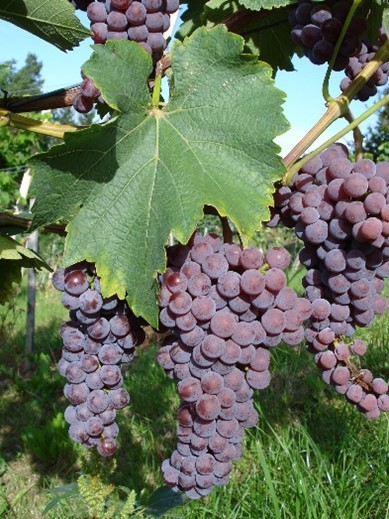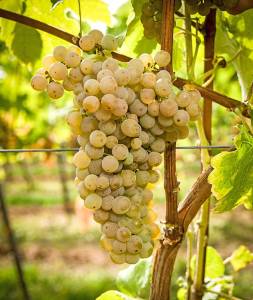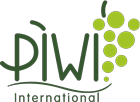Registrazione al PIWI Summit dell'8 aprile 2024
Il mondo dei sapori da PIWI
SENSORIK Profili aromatici dei vini ottenuti da vitigni PIWI come supporto di marketing e mezzo per aumentare l'accettazione.
Testo e illustrazioni: Angus Price, Prof. Dr. Gergely Szolnoki e M.Sc. Barbara Richter, Università di Geisenheim
Fonte: industria vinicola tedesca 21/2023
Il vino, simbolo di raffinatezza, riflette da sempre il ricco patrimonio di un paesaggio culturale risalente a migliaia di anni fa e l'ambiente specifico della sua origine. Tuttavia, i produttori di vino, come molti altri settori, devono affrontare una serie di sfide moderne, che vanno dai cambiamenti climatici all’evoluzione delle preferenze dei consumatori. Al centro di questo sviluppo dinamico ci sono i vitigni che definiscono le proprietà sensoriali e la qualità dei vini. La Germania, paese vitivinicolo, sta attualmente registrando una crescente disponibilità da parte dei viticoltori a piantare varietà di uva PIWI.
Questo articolo approfondisce i fattori trainanti della coltivazione delle varietà di uva PIWI, evidenzia le espressioni aromatiche specifiche della varietà ed esamina il ruolo cruciale delle ruote aromatiche nel superare il divario di comunicazione tra produttori e consumatori. Collegando la ricerca con la scienza sensoriale, questo articolo mira a evidenziare il potenziale delle uve PIWI e la loro imminente importanza nell’industria vinicola tedesca.
Mondiale dei Vins Extremes 2023
Il vino PriMo 2022, ottenuto da uve Solaris a Forni di Sotto a 865 metri di altitudine, ha vinto la medaglia d'oro all'International Extreme Wine Competition dedicato ai vini ottenuti da uve provenienti da terreni che presentano almeno una costante difficoltà strutturale in termini di di elevazione, ubicazione collinare, sistemi di vigneti terrazzati o su più livelli e viticoltura su piccole isole.
Souvignier gris: fruttato o borgognone?
CARATTERISTICHE VARIETALI E AGGIUSTAMENTI IN CANTINA
Autore Wolfgang Renner

Secondo molteplici richieste nel 2023, in Austria ci sono 66 ettari del vitigno Souvignier gris. Questo si rivela un rappresentante versatile del gruppo
di vitigni resistenti ai funghi (PIWI). I dati attuali sugli innesti suggeriscono un ulteriore aumento dell'area. Esperienza pluriennale nel
La coltivazione e l'espansione dalla Stiria mostrano le caratteristiche di questa varietà.
Il vitigno Piwi Souvignier gris (pronunciato Suvinje grie) è stato allevato nel 1983 da Norbert Becker (1937 – 2012) presso l'Istituto statale per la viticoltura di Friburgo in Brisgovia (D). Originariamente si presumeva la discendenza Cabernet Sauvignon x Bronner. Tuttavia, un’analisi del genoma ha smentito questa ipotesi. Souvignier gris è in realtà un incrocio tra Seyval Blanc x Zähringer.
Conclusione:
In ogni caso, un'interessante novità è il Souvignier gris, la razza tedesca dell'Istituto del vino di Friburgo in Brisgovia, che gode di crescente popolarità nella maggior parte delle regioni vinicole austriache. A seconda della maturazione degli acini e del modo in cui vengono lavorate l'uva e il mosto, questo vitigno può produrre molte varianti diverse: dal semplice vino di qualità allo spumante di ottima qualità.
Anche le esperienze precedenti dimostrano che il Souvignier gris è in grado di rappresentare bene il terroir di una zona o di una località.
Appuntamenti PIWI – sempre con te sul tuo smartphone!
Siamo felici di annunciare che il calendario PIWI International può ora essere sottoscritto direttamente sul tuo smartphone! Non perderti più eventi, meeting o appuntamenti importanti e resta sempre aggiornato.
Il calendario contiene importanti eventi, concorsi e incontri legati a PIWI. Che tu sia un membro o solo curioso, il calendario offre un modo rapido e semplice per tenere traccia di tutte le date rilevanti.
Iscriviti al calendario utilizzando il link sottostante:
https://calendar.google.com/calendar/ical/mitglieder%40piwi-international.org/public/basic.ics
In questo modo puoi assicurarti di non perdere nessun evento e di essere sempre ben informato.
Non vediamo l'ora di darvi il benvenuto ai prossimi eventi ed esplorare insieme l'affascinante mondo dei vini PIWI!
Il tuo team internazionale PIWI
Concorso: vitigni nuovi/innovativi
La più grande competizione PIWI nella regione di lingua tedesca!
Graz, luglio 2023
Nel quinto anno, il concorso enologico austriaco PIWI "Vitigni nuovi/innovativi" ha nuovamente portato ad un aumento del numero delle aziende partecipanti e dei vini registrati. La prestigiosa giuria internazionale ha potuto valutare i vini PIWI provenienti da tutti i più importanti Länder federali vitivinicoli.
Varietà PIWI recentemente approvate nelle regioni vinicole d'Europa
Nella Gazzetta Ufficiale dell'UE C 222 del 26 giugno 2023 è stata approvata una nuova varietà (PIWI) per la DOP "Champagne". La varietà Voltis è stata aggiunta alle sette varietà principali esistenti. La resa massima di uva consentita è di 15,5 t/ha.
Un avviso sulla creazione della nuova IGP tedesca "Großräschener See" è stato pubblicato sulla Gazzetta Ufficiale dell'UE C 222 il 26/06/2023. Le varietà coltivate sono le varietà PIWI Solaris, Cabernet blanc, Johanniter e Pinotin. L'IGP si trova nel Brandeburgo sul Großräschener See, vicino al confine con la Sassonia. La resa massima è fissata a 90 hl/ha.
Nella Gazzetta Ufficiale dell'UE C 230 del 30 giugno 2023 è stata concessa l'approvazione delle nuove varietà (PIWI) per l'IGP "Pays d'Hérault" (vicino a Montpellier). Sono state aggiunte in totale 17 nuove varietà PIWI e sono state rimosse 18 vecchie varietà non più utilizzate. Le varietà PIWI recentemente approvate sono Artaban N, Bronner B, Cabernet blanc B, Cabernet Cortis N, Floreal B, Johanniter B, Monarch N, Muscaris B, Pinotin N, Prior N, Saphira B, Sauvignac B, Solaris B, Soreli B, Souvigner gris B, Vidoc N e Voltis B. (N=Noir, B= Blanc)
Jiří Sedlo, 18 luglio 2023
Il vitigno PIWI Calardis Musqué riceve la protezione della varietà vegetale
 Il vitigno a bacca bianca coltivato presso l'Istituto Julius Kühn con piacevoli aromi di frutta esotica è resistente a diversi agenti patogeni.
Il vitigno a bacca bianca coltivato presso l'Istituto Julius Kühn con piacevoli aromi di frutta esotica è resistente a diversi agenti patogeni.
(Siebeldingen) L'allevamento della vite richiede tempo. Questo vale anche e soprattutto per il nuovo vitigno Calardis Musqué. È stato incrociato nel 1964 al Geilweilerhof di Siebeldingen da Bacchus e Seyval Blanc. 59 anni dopo, lo sviluppo dell'ibridazione della vite presso l'Istituto Julius Kühn (JKI), l'Istituto federale di ricerca per le piante coltivate, ha ottenuto il riconoscimento della protezione della varietà vegetale.
Calardis Musqué è uno dei cosiddetti PIWI (vitigni resistenti ai funghi). Oltre a una moderata resistenza all'oidio, alla peronospora e alla botrite, presenta anche un'elevata resistenza al marciume nero. Queste proprietà significano che durante la coltivazione è necessario applicare un numero notevolmente inferiore di pesticidi, un passo importante verso una viticoltura più sostenibile ed essenziale anche per la coltivazione biologica.
copyright Istituto Julius Kühn
Riflettori puntati sulle varietà PIWI di Edy Geiger
Dal 2021, quando molti viticoltori riuscivano a tenere sotto controllo le malattie fungine solo con grande difficoltà, l'interesse per le viti PIWI è aumentato notevolmente. Soprattutto a causa della prospettiva di aiuti finanziari per nuovi impianti. Il pioniere della PIWI Edy Geiger presenta quelle che considera le varietà più promettenti.
Fonte: Rivista svizzera Obst + Wein aprile 2023
PIWI Pedia di Arnold Becker
PIWI-Sorten von A bis Z, in 3 Teilen
Pilzwiderstandsfähige Rebsorten (Piwis) erfahren derzeit ein gesteigertes Interesse: Forschungen werden intensiviert, Vereinigungen zu diesem Thema gegründet und Pfropfreben mancher Sorten sind in Deutschland auf 3 Jahre hin ausverkauft. Gleichzeitig will die Zusammensetzung des Rebsortenportfolios innerhalb eines Betriebs gut über legt sein. Arno Becker vom DLR Rheinhessen-Nahe-Hunsrück möchte mit der Erstellung einer „Piwi-Pedia“ Hilfestellung geben.
Ziel dieses Beitrags ist es, vorhandenes Wissen zusammenzuführen, fortzuschreiben und einen möglichst umfassenden Überblick zu vermitteln. Schließlich werden immer wieder Erkenntnisse über Versuchsserien veröffentlicht, die zwar Teile des Themas darstellen, aber es naturgemäß nicht in der Gesamtheit abbilden können.
Zudem hat der Komplex pilzwiderstandsfähige Rebsorten eine hohe Dynamik, so dass es der Fachliteratur oft schwerfällt, Schritt zu halten.
Bei Züchterangaben werden zudem überwiegend die positiven Attribute in den Vordergrund gestellt.
Quelle: Das deutsche Weinmagazin 14.1.2023 1/2 bis 4
Nuovi Grapevine Vitis e V. vinifera L. x M. resistenti ai funghi.
Nuova vite resistente ai funghi Vite Altro V.vinifera l × M rotundifolia Gli ibridi derivati mostrano un'indipendenza dalla siccità Risposta nei livelli dei precursori tiolici
Luciana Wilhelm de Almeida, Laurent Torregrosa, Gabriel Dournes, Anne Pellegrino, HernUNn Ojeda, e Aurélie Roland*
L'uso di nuove varietà di vite resistenti alle malattie è una soluzione a lungo termine ma promettente per ridurre gli apporti chimici in viticoltura. Tuttavia, si sa poco sugli effetti del deficit idrico su queste varietà, in particolare per quanto riguarda la composizione degli acini. Questo studio ha lo scopo di caratterizzare i livelli di metaboliti primari e precursori tiolici di 6 varietà resistenti ai funghi e Syrah. Le viti sono state coltivate in condizioni di campo e con diversi livelli di approvvigionamento idrico e raccolte all'arresto di scarico del floema. È stata osservata una grande variabilità tra le varietà per quanto riguarda i livelli di precursori tiolici, con la concentrazione più alta, di 539 μg/kg, osservata nel 3176-N, un ibrido a frutti rossi. Il deficit idrico ha avuto un impatto negativo e paritario sull'accumulo di zuccheri, acidi organici e precursori tiolici per bacca e per pianta, con effetti minori sulla loro concentrazione. Le perdite osservate di metaboliti per area di coltivazione suggeriscono che i deficit idrici possono portare a perdite economiche significative per i prodotti.

